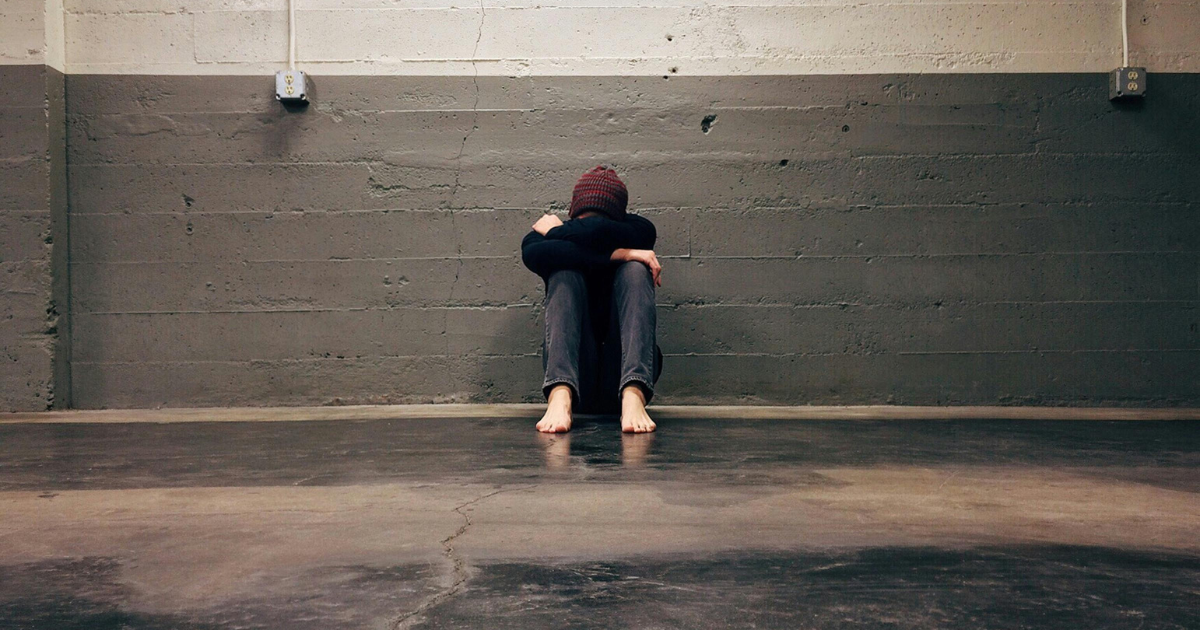In this increasingly busy, overwhelming world, people often look to chemicals for relief, a glass of wine after work, to more severe and disabling dependencies on drugs. Substance use is an increasingly popular coping mechanism, yet what most people don’t realize is the dramatic effect it can have on mental health.
Essential Takeaways
- There is cross-sectional influence, in which substance use feeds into mental health issues or vice versa; having mental health issues makes a person more prone to higher usage of substances, and substance use contributes to worsened mental health.
- Early Intervention. Early recognition of signs and symptoms of mental health that are associated with substance use would improve the prognosis remarkably and open the door to recovery.
- Healthy Coping Strategies Matter. Effective coping, coupled with supportive environments and resilience, can help reduce or eliminate substance use habits.
This blog post analyzes in-depth the intricate relationship that exists between substance use and mental health and how these two aspects interact together, what specific effects are caused by different kinds of substances, and how best to manage and mitigate their impact.

The Importance of Understanding This Relationship
Understanding substance use and its relationship with mental health is crucial in the life of an individual who is setting out to live a healthier lifestyle. Mental health problems provide a route to increased substance use, as individuals will look for a means to cope. Still, the converse will also happen, where the actual substance use can feed and intensify the already weakened mental health condition. Alerting oneself to this interplay opens up avenues for healthier coping mechanisms as well as more informed decisions regarding substance use.
What Is Substance Use?
Substance use refers to alcohol, prescription drugs, and illegal drugs. Some people consume them for hedonistic purposes or to meet medical needs without issues, while other users develop problematic patterns that eventually result in substance use disorder diagnoses. The characteristic of this includes a failure to control use, uncontrollable cravings, and adverse results in different areas of life personal relationships, work, and health.
The Range of Substance Use
It is crucial to note that substance use exists on a spectrum. Here are the stages.
- Experimental Use. Trying a substance a few times without consequences.
- Recreational Use. Infrequent substance use takes place mainly for social reasons but with minimal interference in daily affairs.
- Problematic Use. Regular use began to interfere with responsibility for work, school, or other important responsibilities and relationships.
- Dependency. Physiological or psychological dependence upon the drug, which is evidenced by withdrawal symptoms when the drug is absent.
- Addiction. Addiction is now considered a chronic illness in which the person loses control over use and, more often than not, experiences severe adverse consequences.
Connection Between Substance Use and Mental Health
The Bidirectional Relationship
The relationship between substance use and mental health is hardly a matter of one-way causality. It often plays a bidirectional role; that is, such disorders can stimulate the use of drugs, or conversely, drugs or specific levels of drug consumption may exacerbate or contribute to psychological problems.
Mental health conditions may lead individuals who are anxious, depressed, or suffer from traumatic disorders to resort to substance use as a form of self-medication. Once again, such short-lived relief might lead them into vicious cycles of bad dependency.
Substance Use Leading to A Devolution in Mental Health Long-term use of drugs alters the chemistry of the brain, which impacts a disorder that may exacerbate or even predispose an individual to the development of others. For example, chronic alcohol abuse causes heightened symptoms of depression and anxiety.
Co-Occurring Disorders
Co-occurring disorders are known as dual diagnosis. The term means the presence of one or both of the following disorders. Substance use disorder and mental health disorder.
It is more common than many may believe that studies have shown almost half of patients with a severe mental health disorder also suffer from a substance use disorder. Therefore, this generally presents a challenge in treating the disorders together or separately and hamstrings the recovery process.
The Effects of Specific Substances on Mental Health
Different drugs have varied psychological effects. Knowing the results helps decide whether to use it or not.
Alcohol
- Short-term Effects. Alcohol is a depressant that can make a person feel relaxed and euphoric at first but may lead to a lack of judgment and acts of aggression.
- Long-term Effects. Alcohol use for extended periods leads to alcohol use disorder, which subsequently causes extreme mental disorders like depression and anxiety. Withdrawal may also be harmful and psychologically complicated, causing users to continue the drug.
Opioids
- Short-term Effects. Opioids reduce the feeling of pain to an extensive extent and induce a feeling of euphoria, which has made them gain popularity for their medical and even resort applications.
- Long-term Effects. Tolerance and dependence will develop during a long period of using opioids, and withdrawal symptoms and increased levels of anxiety and depression may come about. Such opioid use lowers the natural production of pleasure in the brain and causes greater dependence on the substance.
Stimulants
- Short-term Effects. Cocaine and methamphetamine are stimulants that can provide the individual with energy and concentration, but they increase paranoia and anxiety.
- Long-term Effects. Chronic administration of stimulants leads to severe psychopathology, typically affective and anxiety disorders, and other cognitive impairments. Psychological effects can persist even after cessation.
Cannabis
- Short-term Effects. Cannabis is an antidepressant or a sedative but, at times, it causes anxiety and a paranoid state.
- Long-term Effects. Chronic Cannabis can lead to psychological dependence and accelerate psychiatric conditions in vulnerable subjects with anxiety or depression.
Recognizing Signs of Mental Health Issues Related to Substance Use
One must identify warning signs of mental health due to substance use. This will make one realize and do the right thing early. These are some of the warning signs.
Behavioral Changes
- Social Withdrawal. One begins isolating oneself from friends, family, and other loved ones, and activities that they enjoy are no longer considered a priority.
- Role Discharge. A tendency to lack performance in work or school and abandoning to do household chores or personal hygiene.
- Increased Anonymity. The person may conceal his or her drug use behavior or even deny his or her usage.

Emotional Symptoms
- Increased Anxiety or Depression. As substance use disorders worsen, mood swings or increased anxiety can become more and more obvious.
- Guilt or Shame. Feelings of remorse or embarrassment about substance use can be a very valid reason for a person to feel isolated and distressed
- Loss of appetite or sleep. Generalized changes in the usual eating or sleeping rhythm may indicate some underlying issues.
- Low Energy. Chronic fatigue is simultaneously a medical manifestation of drug or alcohol use and sometimes an indicator of other mental illnesses.
- Physical Disorders for Which There Is No Identifiable Medical Etiology. Individuals can experience physical complaints that do not have a medically recognizable cause. These will sometimes be associated with substance use.
Strategies for Addressing Substance Use and Mental Health
Seeking Professional Help
The most important step a person can take is to ask for professional help. Mental health professionals can provide many treatment approaches suited to the individual.
- Cognitive Behavioral Therapy (CBT). CBT helps individuals identify and change the negative thought patterns and behaviors that accompany substance use and mental health disorders.
- Motivational Interviewing. This approach is designed to elicit exploration of one’s motivations for change and to decrease ambivalence about treatment.
Support Groups
Community and accountability with peers who have been through your struggles are available at support groups such as Alcoholics Anonymous (AA) or Narcotics Anonymous (NA). Nothing is relatively as healthy as sharing experiences and insights with others who get it.
Healthy Coping Mechanisms
A healthy coping mechanism can rightly address stress without substance. Some of the practical ways follow.
- Mindfulness and Meditation. These activities help slow down, relax the mind, and live in the here and now. They also greatly decrease anxiety and enhance mental well-being.
- Regular Exercise. Relieves Anxieties by Improving Mood and Reducing Stress. And the best part is that it’s an all-natural approach to fighting mental health issues.
- Healthy Relationships. Create Supportive Networks that Provide Emotional Support, Reduce Loneliness, and Help Overcome Isolation.
Preventive Measures Education and Awareness
Raising awareness about how drugs damage mental health would prevent abuse. Community initiatives and educational programs could be of immense help in enlightening the public and family members about the dangers caused by substance use and misuse.
Building Resilience
Building resilience in children and teenagers would enable them to face life’s adversities without succumbing to substances. Some strategies might include.
- Encouraging the Child to Come Up with Solutions. Teaching the child how to deal with problems will help the child manage stress.
- Creating an Emotionally Aware Culture. Openly discussing feelings helps individuals deal with situations rather than hide them.
- Creating a Feeling of Belonging. A supportive culture can make individuals feel valued and understood, thus reducing the chances of turning towards substances.

Final Discussion
This is because the impact of substance use on mental health is profound and quite multifaceted, and the recognition of a close relationship between the two factors can lead to a change in one’s well-being. It comes back to knowing the signs of substance use, seeking professional help regarding the impact it has on one’s mental health, and the effective coping strategies one can implement to work towards recovery and improved mental health.
Such a journey is not going to be easy, but they can get back their lives and improve their mental health with the right support and resources. If you or your loved one is finding himself unable to overcome substance use disorders with mental health issues, do not wait but reach out for help. Your mental health counts and help is available.
FAQs
- What are the most common substances that affect mental health?
The four most commonly used are alcohol, opioids, stimulants, and cannabis. Every one of the substances named can greatly impact the level of mental health, resulting in increased levels of anxiety, depression, and other disorders.
- How can I tell if someone I know is struggling with substance use?
Changes in behavior like social withdrawal, neglect of duties, increased secrets about substance use, and emotional symptoms like mood swings or feelings of guilt may be signs.
- Can mental health improve after stopping substance use?
Yes, many users often note significant improvement in their mental health after quitting their substance use. However, it can become exaggerated with the support of treatment and rehabilitation services.
- What role do support groups play in recovery from substance use and mental health issues?
Support groups offer community, understanding, and accountability, providing a safe space for individuals to share experiences and receive encouragement from peers who understand their struggles.
- Are there any resources for those struggling with substance use and mental health issues?
Indeed, one finds ample resources available are enough mental health professionals, and there are support groups like AA or NA, hotlines that can provide instant support, and websites like SAMHSA.









